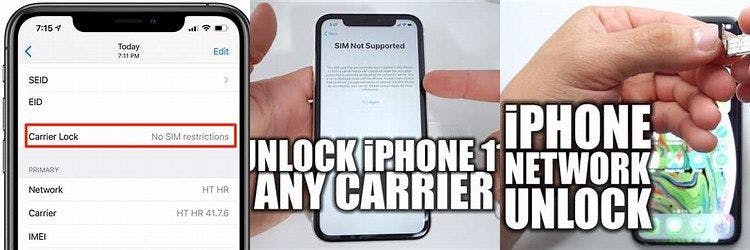Introduction:
Unlocking an iPhone can be a useful process for users who want to switch carriers, use international SIM cards, or gain more control over their device. While unlocking an iPhone used to be a more complicated and controversial task, recent changes in regulations and advancements in technology have made the process more straightforward. In this article, we'll explore the reasons to unlock an iPhone, the methods available, and the legal and ethical considerations surrounding the process.
Reasons to Unlock Your iPhone:
- Carrier Freedom: Unlocking your iPhone allows you the flexibility to switch carriers without having to invest in a new device. This can be particularly beneficial when traveling or when you find a better deal with another carrier.
- International Travel: If you're a frequent traveler, unlocking your iPhone enables you to use local SIM cards in different countries. This can save you money on roaming fees and ensure better connectivity during your travels.
- Resale Value: Unlocked iPhones generally have a higher resale value compared to locked ones. Potential buyers appreciate the freedom to choose their carrier, making your device more attractive in the second-hand market.
Methods to Unlock Your iPhone:
- Contacting Your Carrier: The most straightforward method to unlock your iPhone is to contact your current carrier. Many carriers have policies and procedures in place for unlocking devices, especially if you've completed the terms of your contract or paid off the device in full.
- Third-Party Unlocking Services: Various third-party services offer iPhone unlocking for a fee. These services can be found online, and their processes may vary. It's crucial to research and choose a reputable service to avoid scams or potential security risks.
- Software Unlocking: In the past, software unlocking methods were more prevalent, but with the increasing complexity of iPhone security, this approach has become less common and is not recommended. Attempting to use unofficial software may lead to device malfunctions or security vulnerabilities.
Legal and Ethical Considerations:
- DMCA Exemptions: In the United States, the Digital Millennium Copyright Act (DMCA) includes exemptions that permit the unlocking of smartphones for personal use. However, it's essential to stay informed about any changes in legislation that may affect the legality of unlocking your iPhone.
- Terms of Service: Review the terms of service with your carrier before attempting to unlock your iPhone. Some carriers have specific requirements or waiting periods that must be satisfied before they will unlock a device.
- Warranty and Support: Unlocking your iPhone may void the warranty, and Apple may refuse service or support for unlocked devices. Consider these implications before proceeding with the unlocking process.
Conclusion:
Unlocking your iPhone can provide you with greater freedom and flexibility in choosing carriers and using your device internationally. However, it's crucial to approach the process with caution, ensuring that you comply with legal and ethical standards. Before deciding to unlock your iPhone, research the available methods, consider the potential impact on your warranty and support, and be aware of any legal restrictions that may apply in your region. Ultimately, a well-informed decision will allow you to enjoy the benefits of an unlocked iPhone without compromising your device or violating any regulations.
